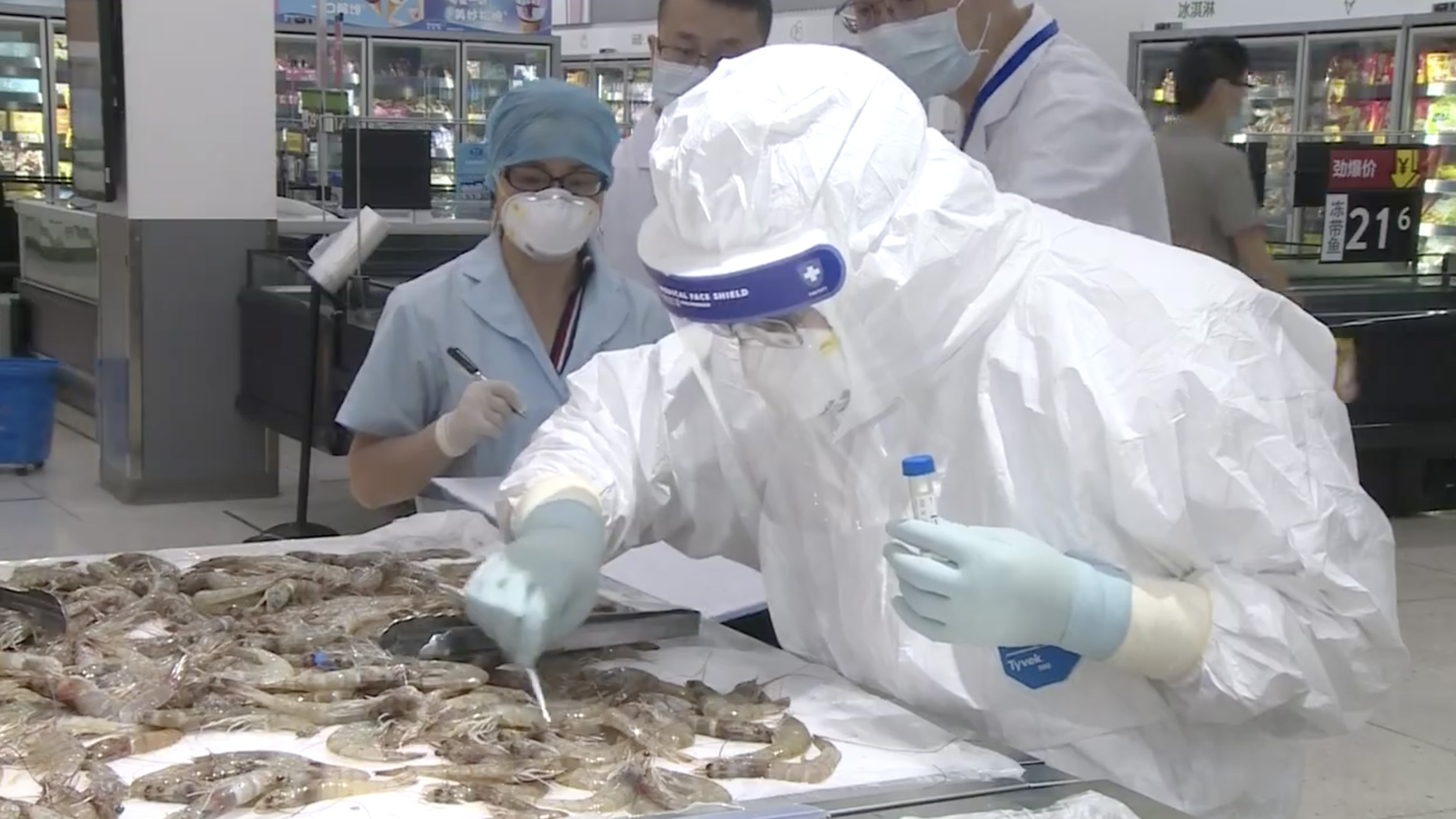00:33

The World Health Organization (WHO) said on Thursday it saw no evidence of coronavirus being spread by food or packaging and urged people not to be afraid of the virus entering the food chain, according to Reuters.
Two cities in China are reported to have found traces of the coronavirus in imported frozen chicken wings from Brazil and on the outer packaging of frozen Ecuadorian shrimp, raising fears that contaminated food shipments might cause a new outbreak.
Read more: Coronavirus found on shrimp packaging from Ecuador, China suspends imports from 23 meat companies
Coronavirus found on packaging of shrimps from Ecuador
"People should not fear food, or food packaging or processing or delivery of food," WHO head of emergencies program Mike Ryan told a briefing in Geneva.
"There is no evidence that food or the food chain is participating in transmission of this virus. And people should feel comfortable and safe."
WHO epidemiologist Maria Van Kerkhove said China had tested hundreds of thousands of packages and "found very, very few, less than 10" proving positive for the virus.

Cold chain the new hotbed for coronavirus?
The two coronavirus cases reported in China relating to the frozen food indeed raised concerns about whether cold chain food storage and transport could be a new hotbed for the coronavirus.
Previous data analysis of gene sequencing has shown that the virus strain that has caused Beijing's latest outbreak at Xinfadi market has European origins.
This has triggered speculation that the virus might have come with imported frozen food and had been lurking somewhere along the supply chain for a couple of months before being exposed to market staff.
Germany has also seen repeated outbreaks in slaughterhouses, where meat is stored and transported at low temperatures.
Chinese experts have explained that viruses in general can survive quite a long time in a cold chain. Some known viruses can even live as long as 20 years when the environment temperature is below -20℃.
But no evidence so far suggested that a temperature-controlled supply chain is the direct cause of the new clusters.
"It is a new virus and how long it can survive in cold environments remains to be studied," Li Lanjuan, a Chinese epidemiologist, told a press conference in June.
Still, she suggested that customs departments should strengthen inspection and test of food transported via cold chains, and trace the source of materials that test positive for the novel coronavirus.